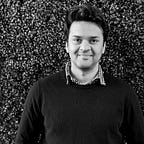Designing “Design Thinking” based solutions
The brief history of Ycenter online learning
Ycenter has been using the Design Thinking framework to facilitate experiential learning programs around Social Innovation, Community building, and Entrepreneurship since 2014. In 2016, we received an invitation to organize a Design thinking workshop for the refugee community in Jordan and another workshop in Brazil for a large not-for-profit organization. Both these invitations came at a time when all our facilitators were already engaged in an Agriculture Innovation project in Kenya and a Social Entrepreneurship project in India. It was an inflection point for us to imagine — What would it be like to recreate an Experiential Learning program for Design Thinking, ONLINE?
The series of questions followed
Can we effectively facilitate Design Thinking to bring social change without being preachy?
Can we do all of these virtually/online?
This situation gave birth to our Online Experiential platform for Innovation and Creativity. And we built a cohort-based course along with an asynchronous online course for Entrepreneurship using Design Thinking. We went through our journey of feeling disdain for online learning platforms to how we may solve this problem and adapt ourselves to reach more people with what we have to offer.
The Pandemic Pivot
So in 2020, when the world stopped and people were locked in, we were ready with a framework on how to effectively deliver an online course. Complex Problem Solving, Empathy, and Creativity were definitely on everyone’s list of things to learn at such a time. So we did multiple programs distinctly different from each other yet tied to one philosophy — Keep it Experiential!
Design Thinking in Africa
We got a chance to work with Mohammed VI Polytechnic University’s Agriedge initiative (https://agriedge.um6p.ma/) and co-create a 6-month virtual incubator program for early-stage agriculture startups in the African continent.
The program is called Filaha (Arabic word for Agriculture) Innovation Program https://filaha-innov.um6p.ma/
The first edition of this program was launched in 2020 at the peak of the COVID-19 pandemic. We received applications from 131 teams from 23 countries across Africa, varying from IoT and Remote Sensing, E-commerce, Data Science, Robotics, Artificial Intelligence, and Blockchain.
Design Thinking for online events
We collaborated with a high-impact organization “Women in Trade, Orange County (WITOC)” based in California. Here is the Design brief we created for this project -
How can Ycenter — in partnership with WITOC and the US Department of Commerce’s Bureau of Industry and Security (BIS) design an interactive course that delivers critical information for compliance with the Export Administration Regulations (EAR).
Using the Ycenter’s set of tools and online experiential pedagogy, we were able to build a virtual platform connected with CISCO WEBEX and GOOGLE MEET for participants from 20+ countries to attend this virtual event over a span of 4 days.
We added LIVE chat support using a combination of human monitored chat and chatbot for instant support. Since many people attending this workshop were using virtual tools for the first time, this included the presenters and the guest speakers. We provided a couple of hours of rehearsal training to ensure the transition from in-person to virtual training was smooth.
Design Thinking in India
As the second wave of COVID-19 pandemic hits the world in 2021, we receive an invitation from yet another impact partner in India — Human Society International India to design and deliver a virtual accelerator program for humane startups in India. https://humaneentrepreneurs.org/
Using the human-centered design framework, the program will help entrepreneurs build empathic, multi stakeholder-centric, and innovative business solutions. From weekly hands-on learning sessions to business mentors, selected entrepreneurs will work with facilitators and mentors in crafting their business models and getting their ideas ready for market launch.
These included companies that are focused on saving animal lives and pro-environment while making a profit. Though we never explicitly termed it as such, these companies are truly double/triple bottom line ventures — People, Planet and Profit.
How 6 next-gen startups are disrupting India’s plant-based industry
https://yourstory.com/2022/03/next-gen-startups-disrupting-indias-plant-based-industry/amp
Design Thinking for helping small businesses
A lot of small businesses continued to suffer in the second year of the pandemic. However, in countries like the USA, there was much support available in the form of grants, loans for businesses to build online platforms.
Ycenter’s Digital Design team supported a few businesses with building online shopping portals using tools like Shopify and Stripe to be able to quickly start selling online. But before we deploy these tools, we work with our clients on implementing the design thinking steps from Discovery to Defining to Prototyping to Designing an actual platform. These allowed for rapid iterative changes to the design and build something at lower cost and ship out faster than typical software build cycles.
Future of using Design Thinking
At Ycenter, we continue to solve Complex Business and Social Problems using Design Thinking. From running an Entrepreneurship program for an incubator to building technology products for corporate organizations, we are excited about the possibilities of using Design Thinking led innovation. From providing advisory and consulting service to Fortune 500 companies to helping startups build an effective go to market strategy, we are amplifying our impact.
As the world opens up to the possibilities of “Living with the virus” we are now open to in-person programs and face-to-face consultation for our clients. All Ycenter team members are practitioners and lifetime learners, with first-hand experience of putting boots on the ground and getting our hands dirty. And while we will continue supporting our clients and partners with online programs, and continue investigating the merits of metaverse and other virtual/digital tools, we look forward to in-person collaborations.
